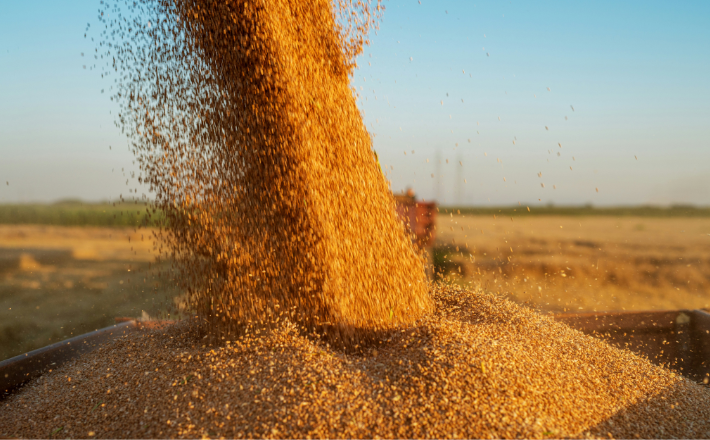Commentary on Luke 12:13-21
In Luke 12:13–21, we once again find Jesus teaching in the midst of a large crowd as he continues his journey to Jerusalem. Someone in the crowd shouts out, asking Jesus to weigh in on a family dispute over an inheritance. Jesus refuses, saying he will not be their arbitrator, and instead tells the crowd a parable.
At first glance, the connection between the request and the parable may seem tenuous. But in truth, Jesus is doing what he often does: redirecting the conversation to expose a deeper issue. Concerns about wealth are distractions, and concerns about future gains are misplaced, because one’s security does not come from money. It comes from God. One’s life, Jesus tells them, does not consist of possessions.
A fool’s miscalculation
In this parable, Jesus tells us about a rich man whose fields produce a surplus harvest. Unsure how to store all this abundance, the man makes plans to tear down his smaller barns and build larger ones. He believes he will be able to store enough to relax for several years and live off what he has earned. We hear his internal monologue as he tells his soul that he can now eat, drink, and be merry.
It is at this moment that God appears and tells the man that he is a fool, because that very night he will die. What good will all his preparations be in light of death?
Jesus ends the story by telling the crowds, “So it is with those who store up treasures for themselves but are not rich toward God” (Luke 12:21).
This story, which is unique to Luke’s Gospel, is one of the more jarring parables, for its original hearers and also—and maybe especially—for many modern hearers because we relate to the rich man. Many of us have 401(k)s or other retirement accounts (or want to have them), and Western society has taught us to dream of retirement years when we can eat, drink, and be merry. And so it doesn’t seem wrong that this man would seek to establish a plan for a future when he could relax. We are not told he gains his wealth by unjust means. We are not told anything negative about him at all until God appears and declares him a fool.
That silence is part of the parable’s power. The man’s mistake isn’t how he made his money. It’s what he believed it could do for him. He put his trust in his possessions and not in God. That’s what made him foolish.
It is disorienting to hear that he has miscalculated. But this disorientation is intentional because in disorienting us, Jesus can push us to a deeper truth about God and the Kingdom of God.
For Luke, this truth is that wealth is a barrier and a distraction to following God because it makes us focus on the wrong things. In Luke 6:24, Jesus says: “Woe to you who are rich, for you have received your consolation.” In Luke 14, Jesus will tell another parable of a great banquet, where the invited guests refuse to accept their invitations because they have lands and families to support. Jesus concludes that story by telling them that to become a disciple, you have to give up all that you have (14:33). In Luke 18, Jesus will meet a rich ruler who wants to inherit eternal life but cannot separate from his possessions and so goes away sad. Jesus will tell his disciples at that moment that it is easier for a camel to pass through the eye of a needle than for a rich man to enter the Kingdom of heaven (Luke 18:25).
They all have the same problem as the rich man on the night of his death and the brother in the crowd fighting over his inheritance: They are focused on the wrong thing. They are worried about what they possess and so have failed to focus on being “rich toward God.” Their hearts are with their earthly treasures, not with God.
Treasures in heaven
This is why, in the following section, Jesus tells his disciples that they don’t need to worry about their life, what they will eat and drink. Too often, this parable in Luke 12:13–21 is separated from the following text: verses 22–32. But they are tightly intertwined. We are not to worry about storing up wealth and what we will eat and drink, because God sees and provides, just as God provides for the ravens and the lilies. Do not worry about those things. Seek instead the Kingdom of God.
In Luke 11, Jesus taught the disciples to ask God for what they need, trusting that God gives good gifts to his children. And here in Luke 12, Jesus is telling them not to worry about the wrong things. We have no control over the future. Stock markets rise and fall. Jobs come and go. We live and we die. We cannot change it by worrying.
But in all of that, Luke stresses that Jesus invites us to trust, not in what we can build or save, but in the God who sees and provides. We cannot change the future, but we can follow God. We can seek after God’s Kingdom. We can turn our hearts and minds toward Jesus. Our possessions will not save us.
But God can.


August 3, 2025